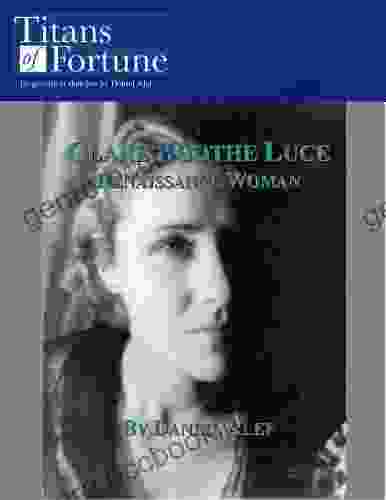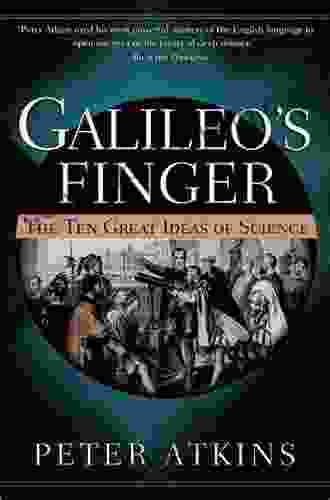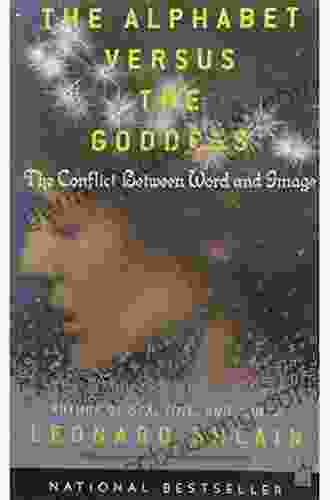Embark on an Intellectual Odyssey with The Ten Great Ideas of Science: Unraveling the Cornerstones of Scientific Thought

In a world increasingly driven by scientific advancements, understanding the fundamental principles that have shaped our comprehension of the universe is paramount. William Thomson, Lord Kelvin, the renowned physicist, once said, "I often say that when you can measure what you are speaking about and express it in numbers, you know something about it; but when you cannot express it in numbers, your knowledge is of a meager and unsatisfactory kind." This quote underscores the importance of the quantitative and objective approach that science has brought to our understanding of the world around us.
Among the plethora of scientific concepts and theories, certain ideas stand out as foundational pillars that have revolutionized our perception of reality. These are the "big ideas" that have not only illuminated the intricate workings of the universe but have also transformed our understanding of our place within it.
4.1 out of 5
| Language | : | English |
| File size | : | 4084 KB |
| Text-to-Speech | : | Enabled |
| Screen Reader | : | Supported |
| Enhanced typesetting | : | Enabled |
| Word Wise | : | Enabled |
| Print length | : | 380 pages |
| Lending | : | Enabled |
In his groundbreaking work, "The Ten Great Ideas of Science," the acclaimed physicist and science writer, George Gamow, takes us on a captivating journey through the most pivotal ideas that have shaped the scientific landscape. From the dawn of civilization to the cutting-edge discoveries of modern physics, Gamow weaves a compelling narrative that reveals the profound impact of these ideas on our understanding of the cosmos.
In this article, we will delve into each of the ten great ideas explored in Gamow's book, unraveling their significance and exploring the profound implications they have had on our perception of the universe.
1. The Idea of Number: Quantifying the World
Numbers have played an indispensable role in shaping our understanding of the world. From the humble beginnings of counting and measuring, the concept of number has evolved into a powerful tool that has enabled us to quantify and analyze the universe around us. Mathematics, the language of science, relies heavily on numbers to express relationships, patterns, and laws of nature.
The ancient Greeks made significant contributions to the development of number theory, recognizing the importance of understanding the properties of numbers and their relationships with geometric shapes. The concept of zero, introduced by the Indian mathematician Brahmagupta in the 7th century, revolutionized the way we represent and perform mathematical operations.
Today, numbers permeate every aspect of our lives, from the financial transactions we make to the scientific discoveries that push the boundaries of human knowledge. The idea of number has become an integral part of our cognitive toolkit, allowing us to quantify and make sense of the world around us.
2. The Idea of Space: The Vastness Beyond
The concept of space has captivated the human imagination since the earliest civilizations. From ancient astronomers gazing at the night sky to modern-day cosmologists probing the depths of the universe, the vastness of space has inspired awe and wonder.
The ancient Greeks conceived of space as a finite sphere, with the Earth at its center. However, the heliocentric model proposed by Nicolaus Copernicus in the 16th century revolutionized our understanding of our place in the cosmos, placing the Sun at the center of the solar system and relegating the Earth to a mere planet orbiting it.
In the 20th century, Albert Einstein's theory of general relativity shattered the traditional notions of space and time, introducing the concept of spacetime as a dynamic fabric that can be warped and curved by the presence of mass and energy. This profound insight has led to a new understanding of the universe, including the existence of black holes and the expansion of the cosmos.
3. The Idea of Time: The Unending Flow
Time, like space, has been a subject of fascination and inquiry throughout human history. From the sundials of ancient Egypt to the atomic clocks of modern physics, humans have devised ingenious ways to measure and understand the passage of time.
The ancient Greeks recognized the cyclical nature of time, associating it with the changing seasons and the movement of celestial bodies. However, it was not until the 17th century that physicists like Galileo Galilei and Isaac Newton developed precise mathematical tools to describe and quantify time.
Einstein's theory of special relativity introduced the concept of time dilation, demonstrating that time can slow down or speed up depending on the observer's frame of reference. This radical idea challenged the traditional notion of time as an absolute and universal constant.
4. The Idea of Matter: The Building Blocks of the Universe
Matter, in all its myriad forms, constitutes everything that exists in the physical world. From the smallest subatomic particles to the vast cosmic structures, matter is the fundamental substance that makes up the universe.
The ancient Greeks believed that all matter was composed of four elements: earth, air, fire, and water. However, the development of modern chemistry in the 18th and 19th centuries led to the discovery of numerous elements and the understanding of their atomic structure.
The discovery of the electron by J.J. Thomson in 1897 marked a turning point in our understanding of matter, revealing that atoms are not indivisible but are composed of even smaller particles. The development of quantum mechanics in the 20th century further deepened our knowledge of the subatomic world, unveiling the wave-particle duality of matter and the probabilistic nature of quantum phenomena.
5. The Idea of Energy: The Driving Force of Nature
Energy, the capacity to do work or produce change, is the driving force behind all physical processes in the universe. From the burning of fossil fuels to the nuclear reactions that power the stars, energy manifests itself in a myriad of forms.
The law of conservation of energy, first formulated by Émilie du Châtelet in the 18th century, states that energy cannot be created or destroyed but only transformed from one form to another. This principle has played a crucial role in the development of thermodynamics and our understanding of the efficiency of energy conversion.
Albert Einstein's equation, E=mc², revealed the equivalence of mass and energy, demonstrating that even the smallest amount of mass contains a tremendous amount of energy. This insight has profound implications for our understanding of nuclear reactions and the energy production of stars.
6. The Idea of Evolution: The Shaping of Life
Evolution, the gradual change of species over time, is one of the most transformative ideas in the history of science. It has revolutionized our understanding of the diversity of life on Earth and the intricate interconnections between organisms.
Charles Darwin's theory of evolution by natural selection, published in 1859, provided a comprehensive explanation for the remarkable diversity of species observed in nature. Darwin proposed that species change over time through a process of natural selection, where individuals with traits that make them better adapted to their environment are more likely to survive and reproduce.
The theory of evolution has not only shaped our understanding of biology but has also had profound implications for fields such as medicine, anthropology, and psychology.
7. The Idea of Genes: The Blueprint of Life
Genes, the units of heredity, hold the instructions for the development and function of every living organism. They are the fundamental building blocks of life, passed down from parents to offspring, carrying the genetic information that determines our traits and characteristics.
The discovery of DNA, the molecule that carries genetic information, by James Watson and Francis Crick in 1953 was a groundbreaking moment in the history of biology. It unlocked the secrets of the genetic code and led to the development of modern genetics and biotechnology.
Understanding the role of genes has had a profound impact on medicine, agriculture, and forensic science. Gene therapy, for instance, holds the promise of treating genetic diseases by manipulating the genetic code.
8. The Idea of the Computer: The Information Revolution
Computers, electronic devices capable of performing complex calculations and processing vast amounts of information, have revolutionized the way we live, work, and communicate.
The development of the first programmable
4.1 out of 5
| Language | : | English |
| File size | : | 4084 KB |
| Text-to-Speech | : | Enabled |
| Screen Reader | : | Supported |
| Enhanced typesetting | : | Enabled |
| Word Wise | : | Enabled |
| Print length | : | 380 pages |
| Lending | : | Enabled |
Do you want to contribute by writing guest posts on this blog?
Please contact us and send us a resume of previous articles that you have written.
 Book
Book Novel
Novel Page
Page Chapter
Chapter Text
Text Story
Story Genre
Genre Reader
Reader Library
Library Paperback
Paperback E-book
E-book Magazine
Magazine Newspaper
Newspaper Paragraph
Paragraph Sentence
Sentence Bookmark
Bookmark Shelf
Shelf Glossary
Glossary Bibliography
Bibliography Foreword
Foreword Preface
Preface Synopsis
Synopsis Annotation
Annotation Footnote
Footnote Manuscript
Manuscript Scroll
Scroll Codex
Codex Tome
Tome Bestseller
Bestseller Classics
Classics Library card
Library card Narrative
Narrative Biography
Biography Autobiography
Autobiography Memoir
Memoir Reference
Reference Encyclopedia
Encyclopedia Leon Davidson
Leon Davidson Larry Yatch
Larry Yatch Phuc Tran
Phuc Tran Laurent E Calvet
Laurent E Calvet Laurel Gallucci
Laurel Gallucci Lori R Snyder
Lori R Snyder La Toya Jackson
La Toya Jackson Lee Savage
Lee Savage Lindsay Robertson
Lindsay Robertson Peter Roop
Peter Roop Renee Graziano
Renee Graziano Lee Cronk
Lee Cronk L Renee Whaley
L Renee Whaley Simone St James
Simone St James Philippa Gregory
Philippa Gregory Leah Vanderveldt
Leah Vanderveldt Ngugi Wa Thiong O
Ngugi Wa Thiong O Nicole Trope
Nicole Trope Thomas Hill
Thomas Hill Martin Adeney
Martin Adeney
Light bulbAdvertise smarter! Our strategic ad space ensures maximum exposure. Reserve your spot today!

 Ethan MitchellUnleash Your Inner Devil with the Enchanting Devil Horned Hat Crochet Pattern
Ethan MitchellUnleash Your Inner Devil with the Enchanting Devil Horned Hat Crochet Pattern Charles ReedFollow ·16.4k
Charles ReedFollow ·16.4k Sidney CoxFollow ·2.2k
Sidney CoxFollow ·2.2k Hamilton BellFollow ·14.1k
Hamilton BellFollow ·14.1k Heath PowellFollow ·7.1k
Heath PowellFollow ·7.1k Nathaniel HawthorneFollow ·16.5k
Nathaniel HawthorneFollow ·16.5k Curtis StewartFollow ·5.3k
Curtis StewartFollow ·5.3k Jeffrey HayesFollow ·3.9k
Jeffrey HayesFollow ·3.9k Isaiah PriceFollow ·7.9k
Isaiah PriceFollow ·7.9k

 Branden Simmons
Branden SimmonsUnveiling the World of Tequila: A Collector's Guide to...
: Prepare to embark on a tantalizing journey...

 Chuck Mitchell
Chuck MitchellHazel McCallion and the Development of Mississauga: A...
: The Matriarch of Mississauga Hazel...

 Lucas Reed
Lucas ReedUnveiling the Hidden Treasures of Tequila, Mezcal, and...
Prepare to be captivated...

 Isaias Blair
Isaias BlairBusinesses With Stories: The Power of Storytelling in...
In today's competitive business environment,...

 Ethan Gray
Ethan GrayUnveiling the World of Tequila, Mezcal, and Sotol: The...
Embark on a...

 Barry Bryant
Barry BryantClare Boothe Luce: Renaissance Woman
In the annals of history, few...
4.1 out of 5
| Language | : | English |
| File size | : | 4084 KB |
| Text-to-Speech | : | Enabled |
| Screen Reader | : | Supported |
| Enhanced typesetting | : | Enabled |
| Word Wise | : | Enabled |
| Print length | : | 380 pages |
| Lending | : | Enabled |










